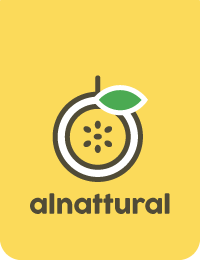OUR BLOG
The point of using Lorem Ipsum is that it has a more-or-less normal distribution of letters, as opposed to using 'Content here, content here', making it look like readable English

Sustainable Sourcing of Exotic Fruits
Discover why certified sustainable sourcing is the new standard in the exotic fruit industry Sustainable sourcing of exotic fruits such as passion fruit, granadilla, golden berries, and mangosteen has become…
Read more
Certified Exotic Fruits: Where to Buy and How to Ensure Quality
Discover the origin, certifications, and trusted sources for premium Colombian exotic fruits If you’re looking for certified exotic fruits like granadilla, passion fruit, or golden berries, it’s essential to know…
Read more
Freshness, Quality, and Compliance for Wholesale Buyers
Exotic Fruit Imports In the world of exotic fruit imports, freshness and quality are non-negotiable. For wholesale and specialized importers, maintaining strict compliance with certifications like GlobalG.A.P., SMETA, and MRL…
Read moreGET IN TOUCH
Latin words, combined with a handful of model sentence structures, to generate Lorem Ipsum which looks reasonable.
Error: Contact form not found.
Discover why certified sustainable sourcing is the new standard in the exotic fruit industry
Sustainable sourcing of exotic fruits such as passion fruit, granadilla, golden berries, and mangosteen has become a key strategy for B2B importers seeking to meet market regulations, consumer demand, and ensure long-term supply chain resilience. But what does sustainability truly mean in this context—and how can importers benefit from it?
Let’s explore why certified sustainable sourcing is not just a trend, but a necessary step for the future of the exotic fruit trade.
Why Sustainable Sourcing of Exotic Fruits Matters
In the current global trade landscape, sustainable sourcing of exotic fruits is essential. European retailers and end consumers increasingly demand transparency, ethical practices, and environmental responsibility from their suppliers. For importers, this shift means that sustainability is not just about values—it’s about maintaining access to high-value markets and reducing operational risks.
Key benefits include:
- Compliance with EU Green Deal and CSR regulations
- Positive brand positioning with conscious buyers
- Strengthened relationships with certified suppliers
Choosing sustainable sourcing is not just about ethics—it’s smart business.
Core Practices Behind Sustainable Sourcing of Exotic Fruits
The success of sustainable sourcing of exotic fruits starts at the origin: the farm. Reliable exporters work with growers who follow certified, environmentally conscious methods. These include:
- Regenerative agriculture: Use of compost, cover crops, and natural pest control to improve soil and biodiversity
- Efficient water use: Drip irrigation and moisture monitoring to minimize waste and ensure consistent fruit quality
- Carbon reduction strategies: Local input sourcing, low-emission logistics, and eco-conscious farming techniques to cut greenhouse gases
Working with GlobalG.A.P.-certified farms ensures these practices are consistently applied and independently audited.
Traceability: The Backbone of Sustainable Sourcing
To make sustainable sourcing of exotic fruits credible and scalable, importers must rely on robust traceability systems. These track every step from crop to export, guaranteeing:
- Product authenticity
- Verified certifications
- Faster customs and compliance checks
GlobalG.A.P. Chain of Custody (CoC) certification supports full traceability, helping importers avoid greenwashing claims and regulatory setbacks while gaining trust with conscious retailers and food service clients.
How Importers Can Leverage Sustainable Sourcing Strategically
By investing in sustainable sourcing of exotic fruits, importers gain a competitive edge in more ways than one:
- Secure access to certified supply for strict markets like the EU
- Strengthen brand differentiation by aligning with global sustainability goals
- Reduce operational vulnerabilities due to environmental and legal shifts
- Foster long-term supplier relationships built on transparency and shared values
These advantages not only boost market access and credibility but also future-proof your sourcing operations.
Source Smarter, Grow Sustainably
Sustainable sourcing of exotic fruits is no longer optional—it’s a decisive factor for growth, compliance, and brand relevance. Importers who prioritize sustainability today will be the leaders of tomorrow’s global fruit trade.
👉 Want to work with a certified sustainable exporter? Contact Alnattural and discover how we support responsible sourcing from Colombia’s finest farms.
Discover the origin, certifications, and trusted sources for premium Colombian exotic fruits
If you’re looking for certified exotic fruits like granadilla, passion fruit, or golden berries, it’s essential to know where they come from, how they’re cultivated, and where to source them reliably. These tropical treasures are not only flavorful, but also increasingly demanded in international markets that value certification, sustainability, and traceability.
Why Choose Certified Colombian Exotic Fruits?
Colombia is one of the world’s leading producers of exotic fruits, thanks to its diverse climates and rich soils. But what truly sets certified Colombian exotic fruits apart is their compliance with international standards. Products with certifications like GlobalG.A.P. and MRL compliance ensure:
Safe and hygienic agricultural practices
Environmentally sustainable farming
Full traceability from the farm to your warehouse
Verified social responsibility standards
By choosing certified fruits, importers can meet their clients’ expectations and avoid legal or quality issues in the supply chain.
Where Are Exotic Fruits Grown in Colombia?
The most prized certified Colombian exotic fruits are grown in the Andean and coffee-growing regions, where altitude and microclimates allow fruits like:
Passion fruit (gulupa): Predominantly grown in Huila, Tolima, and Antioquia
Granadilla: Cultivated in Cundinamarca and Boyacá
Golden berries (physalis): Thriving in the highlands of Nariño and Cundinamarca
These regions also host farms that have achieved GlobalG.A.P. certification, a vital requirement for export to Europe and other regulated markets.
Where to Buy Certified Colombian Exotic Fruits?
For B2B buyers—including wholesalers, retailers, and HoReCa distributors—the best way to purchase certified Colombian exotic fruits is directly from exporters that specialize in international logistics and compliance.
At Alnattural, we offer:
Direct export from certified farms
Air and sea freight shipping options
Real-time traceability and documentation
Ongoing support with customs and regulatory compliance
This ensures consistency, quality, and transparency at every stage of the supply chain.
How to Verify Quality and Certification?
Before importing, always request:
GlobalG.A.P. certificates
MRL analysis reports
Harvest and packaging dates
Photos or virtual inspections
Reputable exporters will provide this without hesitation. At Alnattural, we go a step further by offering personalized crop monitoring and updates, so you’re always in control.
Start Sourcing with Confidence
Sourcing certified Colombian exotic fruits isn’t just about taste—it’s about trust, traceability, and global standards. With the right partner, you can confidently expand your product portfolio while meeting your market’s growing demand for quality and sustainability.
👉 Looking for a certified exporter? Contact Alnattural today to request samples or discuss your sourcing needs.
Exotic Fruit Imports
In the world of exotic fruit imports, freshness and quality are non-negotiable. For wholesale and specialized importers, maintaining strict compliance with certifications like GlobalG.A.P., SMETA, and MRL regulations is essential—not just for regulatory approval, but to meet customer expectations and protect brand integrity. How can importers ensure that every box of golden berries, passion fruit, granadilla, or mangosteen arrives in top condition?
Expertise is the Foundation of Successful Exotic Fruit Imports
Importing exotic fruits requires more than transportation—it’s a fine-tuned process that starts at the farm and ends at the final point of sale. From harvest timing to packaging, every stage must be optimized. Fruits like passion fruit and granadilla must be harvested at ideal ripeness and firmness. Golden berries must be uniform in size and color, while mangosteens require extra care to avoid bruising.
Choosing the right sourcing partner makes all the difference. Alnattural works directly with GlobalG.A.P.-certified producers and follows strict protocols to guarantee consistent product quality and compliance.
Postharvest Handling: Precision at Every Step
The journey of premium exotic fruits begins with meticulous postharvest practices. Alnattural uses biodegradable, micro-perforated liners and Vinypell or mesh covers to protect the fruits during transport. Packaging is optimized in 2–2.5 kg boxes to reduce damage and maintain freshness.
This attention to detail extends shelf life and minimizes losses during transit—critical factors for importers looking to reduce claims and improve customer satisfaction.
Cold Chain Management: Protecting Freshness Across Borders
Cold chain integrity is vital for preserving the quality of exotic fruits. For sea freight shipments, golden berries and passion fruits are kept at 8–12°C, extending shelf life up to 27 days postharvest. For smaller airfreight consignments (typically 150 boxes per pallet), the priority is rapid movement through customs while maintaining peak freshness.
Alnattural integrates real-time temperature and humidity monitoring across the entire supply chain—from Colombia to Europe—to prevent disruptions that could compromise product quality.
Certifications and Traceability: What B2B Buyers Expect
Wholesale importers now demand full transparency and compliance documentation with every shipment. At Alnattural, we deliver:
- GlobalG.A.P. IFA certification
- Phytosanitary certificates
- MRL laboratory test results
- Certificate of origin and packing records
This level of traceability supports faster customs clearance and ensures compliance with EU regulations, while reinforcing buyer confidence.
Your Strategic Partner in Exotic Fruit Imports
High-quality exotic fruit imports depend on deep expertise, rigorous processes, and certified sourcing. At Alnattural, we combine all three to help importers protect their brand, reduce risk, and meet the growing demand for transparency and sustainability.
👉 Looking for a reliable partner in exotic fruit imports? Let’s talk. Contact us to explore certified, traceable, and consistently fresh solutions tailored to your supply needs.



